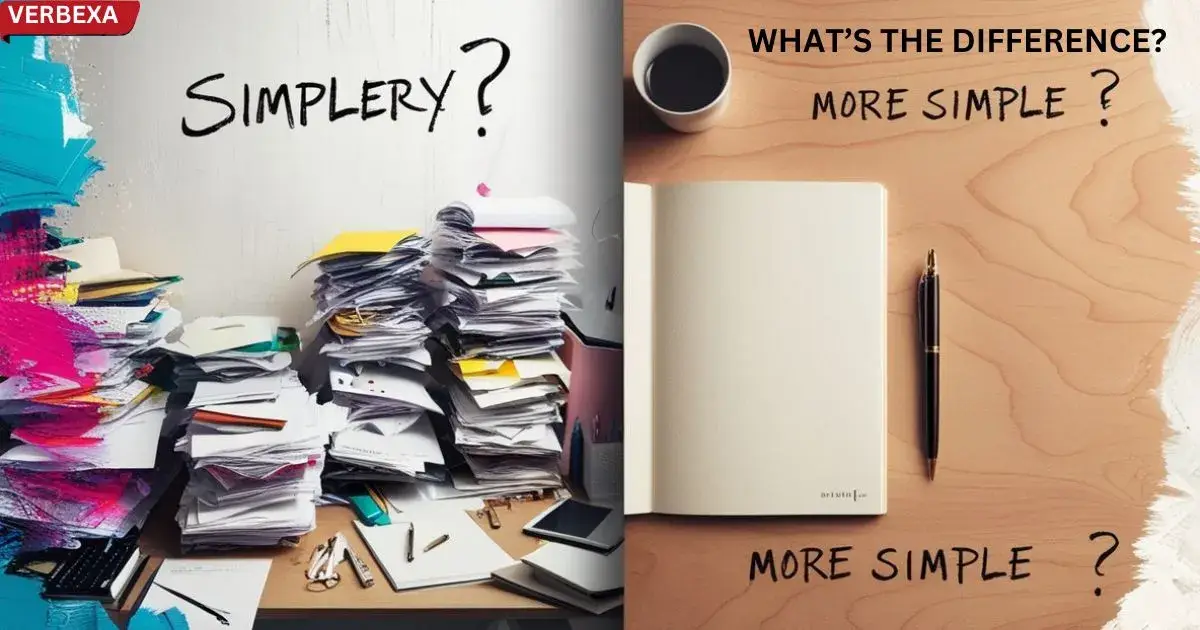In the vast landscape of English language, few grammatical nuances create as much confusion as the comparative forms of adjectives. Today, we’re diving deep into the simpler or more simple debate—a linguistic puzzle that has perplexed writers, students, and language enthusiasts for generations.
Imagine you’re drafting an important email, and you pause, fingers hovering over the keyboard. Should you write “This solution is simpler” or “This solution is more simple“? This moment of hesitation is familiar to many, highlighting the importance of understanding language clarity and precise word choice.
The distinction between simpler or more simple might seem trivial, but in the world of effective communication, every word counts. This article will unravel the mysteries surrounding these terms, providing you with practical insights and grammar rules to enhance your writing confidence.
Definitions and Usage
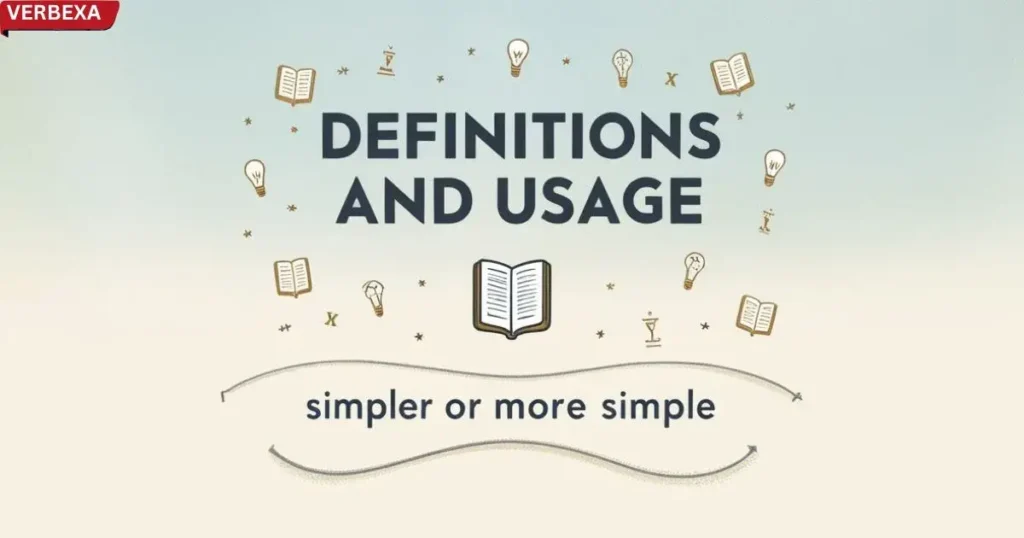
Understanding “Simpler”
Simpler is the standard comparative form of the adjective “simple.” It follows the traditional grammatical rule for shorter adjectives (typically one or two syllables) where you add “-er” to create the comparative form.
Examples of “Simpler” in Context:
- The new workflow is simpler than the previous one.
- We need a simpler approach to solving this problem.
- Finding a simpler solution became our primary goal.
Exploring “More Simple”
More simple is an alternative construction that some writers use, though it’s less common and often considered less grammatically preferred in formal writing.
Examples of “More Simple” in Context:
- The explanation could be more simple and direct.
- This method appears more simple at first glance.
- A more simple strategy might yield better results.
Comparison Table: Simpler vs More Simple
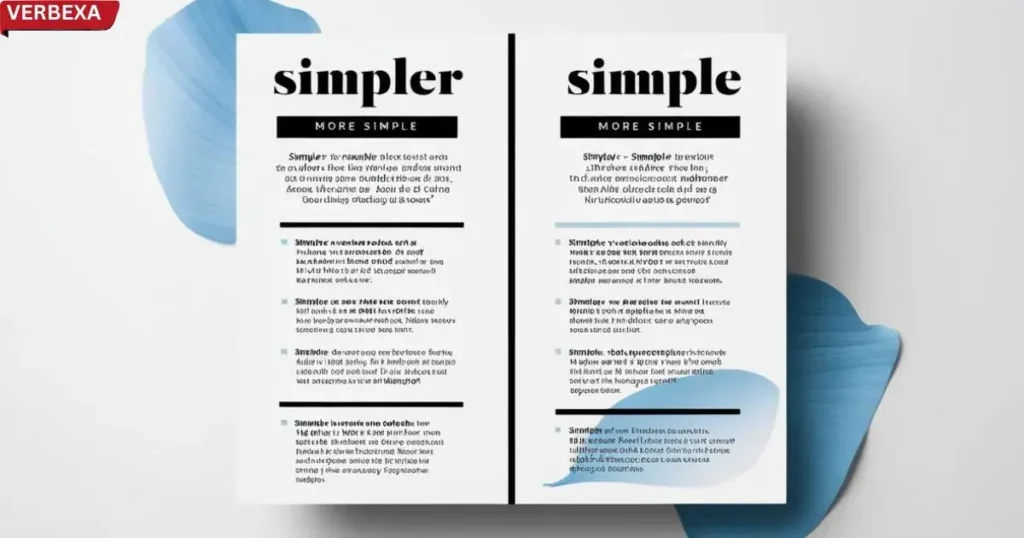
Let’s summarize the key differences in a concise comparison:
| Feature | Simpler | More Simple |
|---|---|---|
| Definition | Less complex than something else | More uncomplicated |
| Grammatical Role | Comparative adjective | Adjective phrase |
| Conciseness | More concise | Less concise |
| Formality | Suitable for all contexts | Can sound slightly awkward in formal writing |
| Emphasis | Implies less complexity | Explicitly emphasizes simplicity |
| Common Usage | Very common | Less common |
This side-by-side comparison highlights the key differences between the two terms more simple vs simpler. It helps readers understand when to employ either option, based on the desired level of formality and emphasis.
When to Use Each Term: Practical Guidance
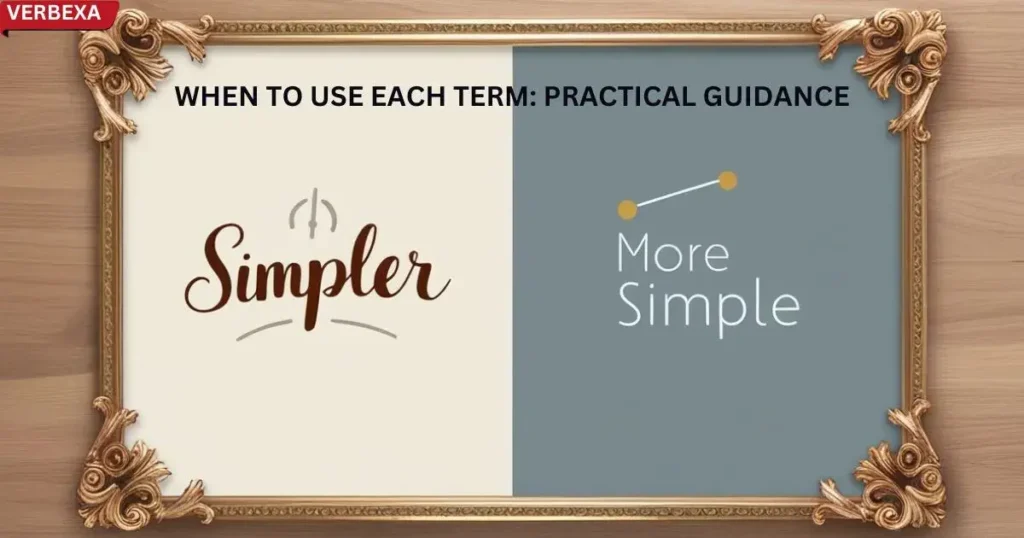
The decision of whether to use simpler or more simple often depends on stylistic preference and the level of emphasis needed. Here’s a guide:
- Use “simpler” in most situations. It’s more concise, grammatically sound, and fits smoothly into all writing styles. It’s the more versatile and generally preferred option. It’s a simpler way to communicate and improves the clarity of your message.
- Use “more simple” sparingly. Reserve this option for instances where you want to strongly highlight the lack of complexity. For example, if you’re contrasting a complicated process with a significantly simplified one, “more simple” might effectively emphasize the difference. Even then, consider if “much simpler” or a similar alternative would achieve the same result without being redundant.
Everyday Usage Examples
Let’s illustrate the difference with relatable examples in sentences:
- Simpler: “The new software is simpler to use than the old version.” This sentence is clear, concise, and grammatically correct.
- More Simple: “This explanation is more simple than the previous one, so everyone should understand.” While grammatically correct, “This explanation is simpler…” is generally preferred.
- Simpler: “A simpler solution is often the best one.” This sentence is perfectly suitable for both formal and informal communication.
- More Simple: “We need a more simple design to appeal to a wider audience.” Again, “We need a simpler design…” is a more elegant and commonly used phrasing.
- Simpler: “The instructions are much simpler now, leading to less confusion.” Using “simpler” is clearer and more direct.
Key Takeaways:
- Simpler is the standard, preferred comparative form
- Use “-er” for short adjectives
- Maintain consistency in your writing style
- Prioritize clarity and readability
Pro Tips for Language Precision
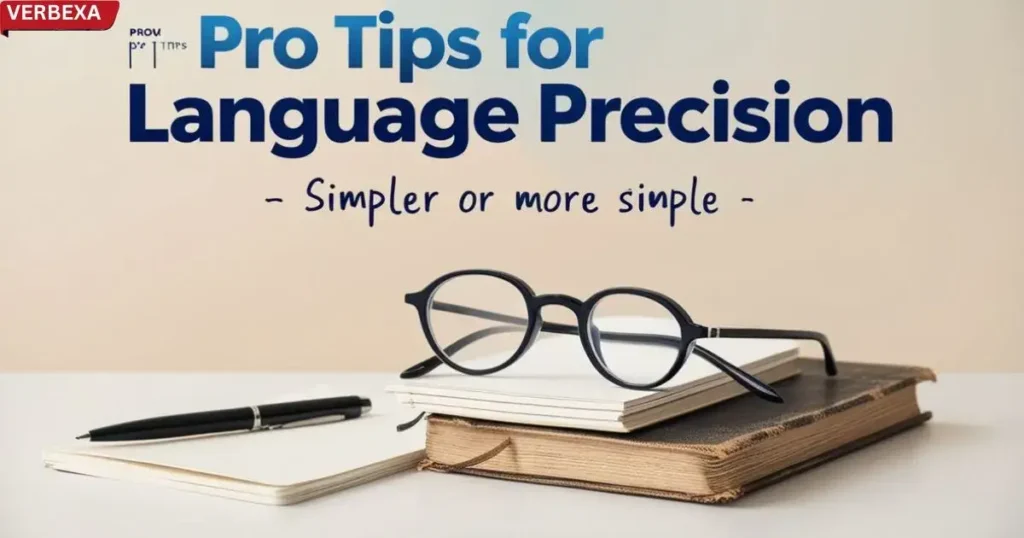
- When in doubt, choose simpler
- Read your sentences aloud to test natural flow
- Consult style guides for specific writing contexts
- Practice makes perfect in language mastery
Language is a living, breathing entity. While grammar rules provide structure, they also evolve. The more simple or simpler debate illustrates the beautiful complexity of English communication.
Remember: Clear communication trumps rigid adherence to rules. Choose the phrase that makes your message most understandable.
Conclusion: Mastering Language Nuances
While both simpler or more simple can technically describe something less complicated, “simpler” is usually the better choice due to its conciseness and broader applicability. “More simple” adds emphasis but often introduces redundancy and can sound slightly unnatural. The choice comes down to both grammatical rules and stylistic preference. Using “simpler” demonstrates clear and effective writing.
Mastering the distinction between these two phrases enhances your writing skills, allowing for more precise and impactful communication. Focus on clarity and develop the habit of using the simpler option whenever possible. The most important goal is to achieve improved clarity in your expression, which leads to more effective communication. Understanding these nuances significantly improves your overall writing abilities.

This author is a passionate linguist and grammar enthusiast, dedicated to helping individuals master the art of language. With years of experience in teaching and editing, she brings clarity and precision to every sentence. Tina’s mission is to empower writers of all levels to express themselves with confidence and excellence.

